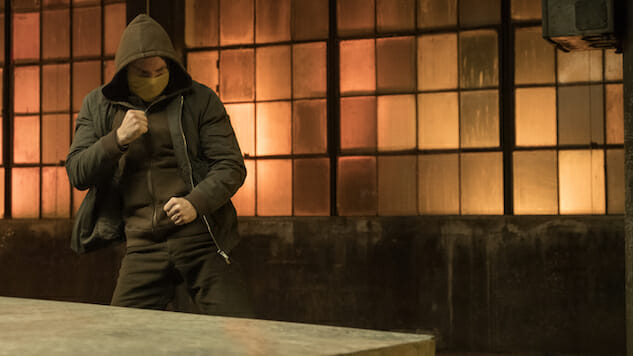In Season Two, Iron Fist Remains as Compelling as a Stale Saltine
Photo: Linda Kallerus/Netflix
Colleen Wing (Jessica Henwick) has hung up her katana. You know: Literally, on the wall, as a decorative item in the apartment that was once her dojo. Bad omen alert: This means you’re going to be deprived of Henwick’s scene-stealing fisticuffs while she wrestles with an irritating identity crisis for… I can’t say for sure, but given the ultra-predictability of Iron Fist, I’m going to go with half the season. There’s no way she gets through the sixth episode without gleefully jumping back into her métier. And I sure hope so, because her feeble attempts to act happy as a community center volunteer processing paperwork for immigrants are so pat you can anticipate most of the dialogue.
Danny Rand (Finn Jones) might be taking his Iron Fisticuffs a little too far, delivering an increasingly violent and sanctimonious level of justice to a Chinatown on the brink of a serious gang war. I like Finn Jones—especially when he’s playing a privileged alt-medieval fop who excels at jousting. And I won’t rehash the whole “Allow me to Whitesplain kung fu to you” thing, because there is no new ground to tread here. In short, the story’s shortcomings are not the actor’s fault. What is arguably on Finn Jones is that, as Danny Rand’s relationship with his own power is ostensibly shifting uncomfortably, he remains about as piquant and complicated as a stale saltine.
If you are one of the approximately six people who didn’t groan at the first season of this plodding, dull headache of a property, good news: You will also not hate the second one. There’s a Superfrenemy: Steel Serpent, played by Sacha Dhawan, is back, and definitely in cahoots with Joy (Jessica Stroup). There’s a Superpsycho with DID (Mary Walker, played by Alice Eve). There’s a lot of punching and kicking and a Triads war in which punching and kicking continue to show a miraculous level of superiority over guns.
-

-

-

-

-

-

-

-

-

-

-

-

-

-

-

-

-

-

-

-

-

-

-

-

-

-

-

-

-

-

-

-

-

-

-

-

-

-

-

-








































